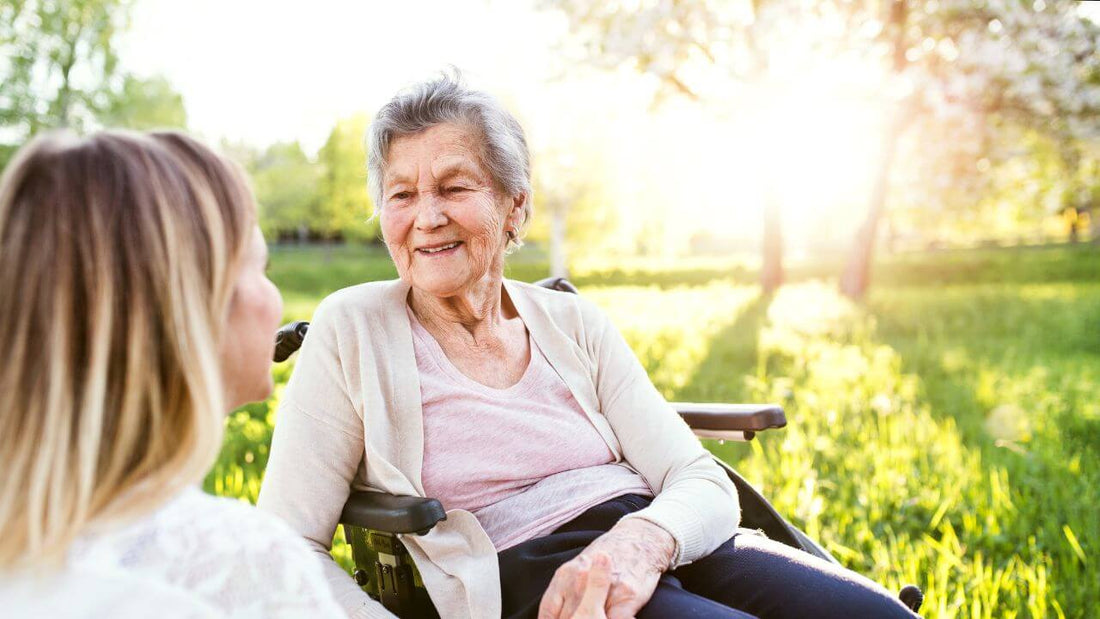
Grounding as a Complementary Treatment for Alzheimer's
Denzel SueltoGrounding, also known as earthing, is a simple practice where you make direct contact with the earth, either by walking barefoot outside or using grounding devices. It's becoming more popular among people looking for natural ways to support their health.
Recently, some early research has started exploring whether grounding might offer benefits for people with Alzheimer's disease.
Can Grounding Help People With Alzheimer’s Disease?
Grounding might help people with Alzheimer's by lowering oxidative stress and inflammation in the body. Oxidative stress happens when there are too many free radicals, causing damage to cells, including brain cells.
In Alzheimer's, oxidative stress is a major factor that worsens cognitive decline. Grounding could potentially slow down some of this damage by reducing the amount of oxidative stress.
Grounding appears to influence the brain and nervous system in a few different ways. It can lower cortisol levels, which are often elevated during periods of stress. Lowering stress hormones may help protect brain cells.
Grounding is also believed to improve electrical activity in the body, helping balance the autonomic nervous system. By reducing overall inflammation and oxidative stress, grounding could indirectly help protect brain function and memory.
What Are the Possible Benefits of Grounding for Alzheimer’s Patients?
Grounding might offer several benefits for people with Alzheimer's, although it's important to remember these are potential benefits based on early research. Grounding could lead to better sleep, which is often a big challenge for Alzheimer's patients.
It may also reduce inflammation throughout the body, lower stress levels, and help the body recover from daily oxidative stress. All of these factors can contribute to better overall health and possibly slow the cognitive decline linked to Alzheimer's.
Should Grounding Be Used Alone to Treat Alzheimer’s?
No, grounding should never be used alone to treat Alzheimer's disease. It is not a replacement for medications, therapies, or medical advice.
Grounding should be viewed as a complementary practice that might support overall health and well-being alongside regular treatments.
Always consult with a healthcare provider before adding any new therapy, even natural ones like grounding.
Final Thoughts on Grounding for Alzheimer’s
Grounding is a simple, low-cost practice that may offer some promising health benefits, including reducing oxidative stress and improving sleep. While early research is encouraging, it's still too soon to say for sure how much grounding can help people with Alzheimer's disease.
For now, it might be worth exploring as a gentle, supportive practice alongside traditional treatments — but it should always be done with a doctor's guidance.
References
Chevalier, G., Sinatra, S. T., Oschman, J. L., Sokal, K., & Sokal, P. (2012). Earthing (Grounding) the Human Body Reduces Blood Viscosity—a Major Factor in Cardiovascular Disease. Journal of Alternative and Complementary Medicine, 18(2), 109–117.
Lin, C. H., Tseng, S. T., Chuang, Y. C., Kuo, C. E., & Chen, N. C. (2022, March). Grounding the body improves sleep quality in patients with mild Alzheimer’s disease: a pilot study. In Healthcare (Vol. 10, No. 3, p. 581). MDPI.
Sokal, K., & Sokal, P. (2011). Earthing the human body influences physiologic processes. Journal of Alternative and Complementary Medicine, 17(4), 301–308.
Taylor, M., & Johnson, B. (2025). Grounding as a Complementary Intervention for Alzheimer's Disease. Clinical EEG and Neuroscience.










